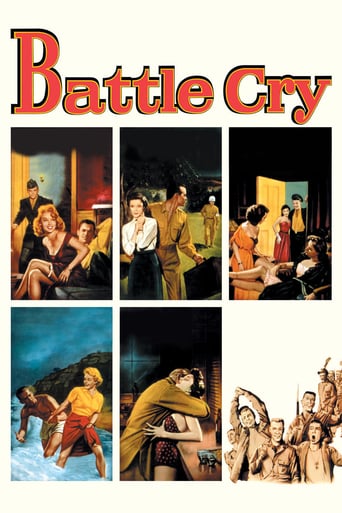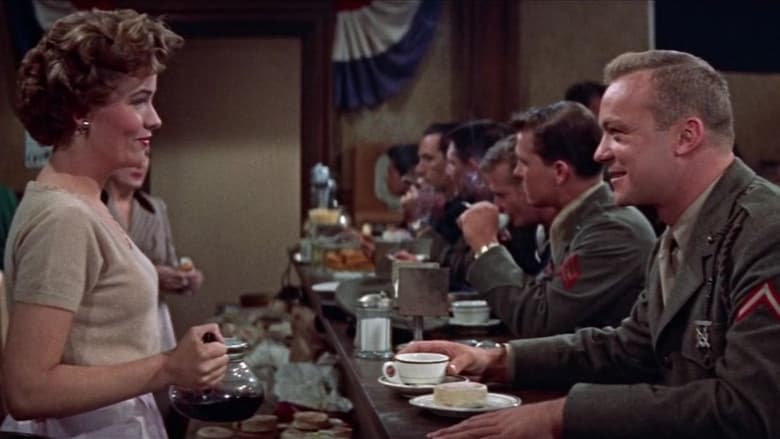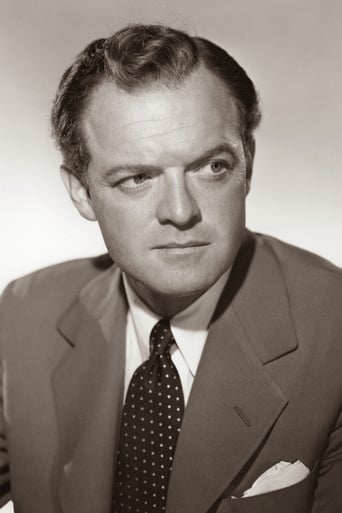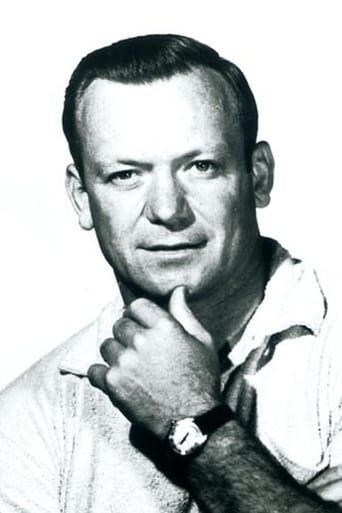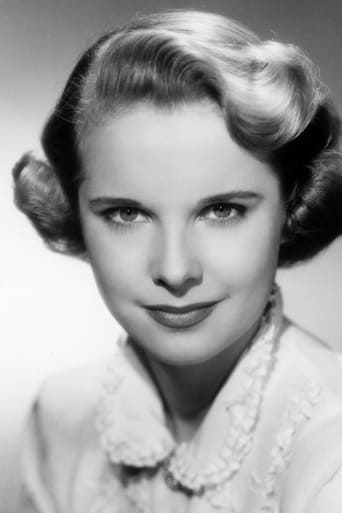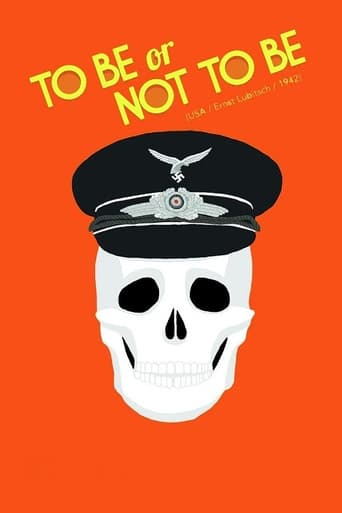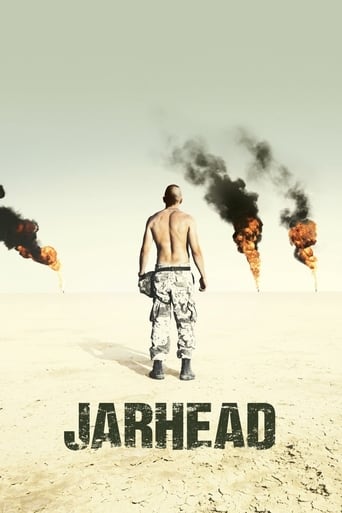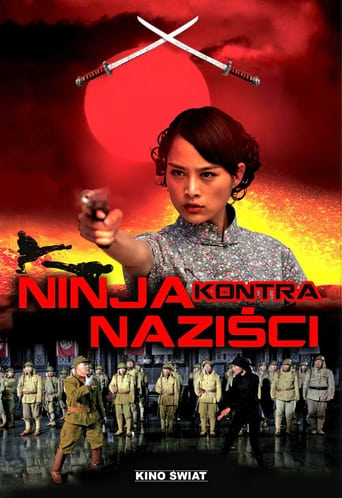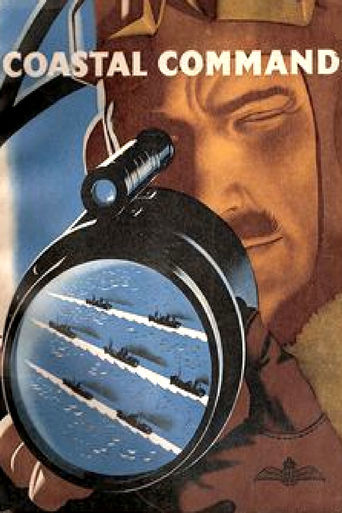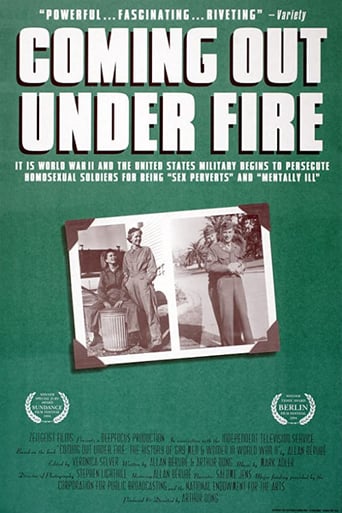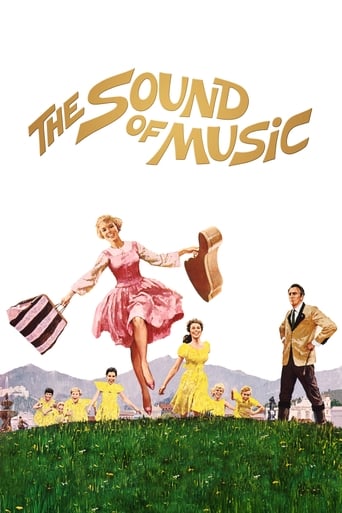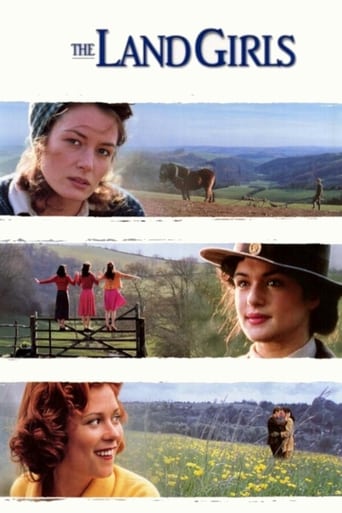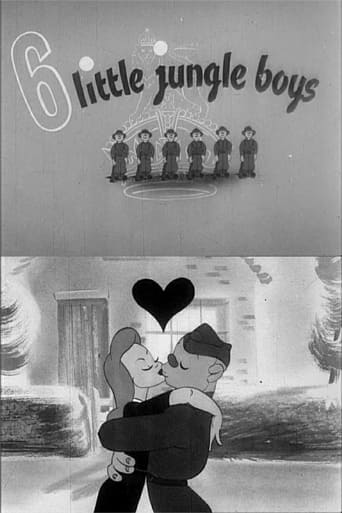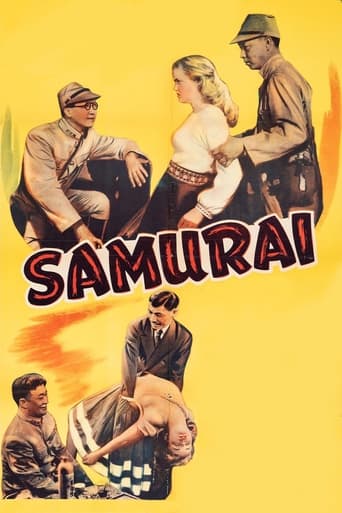Battle Cry (1955)
The dramatic story of US marines in training, in combat and in love during World War II. The story centres on a major who guides the raw recruits from their training to combat. Based on the novel by Leon Uris.
Watch Trailer
Cast


Similar titles
Reviews
At first rather annoying in its heavy emphasis on reenactments, this movie ultimately proves fascinating, simply because the complicated, highly dramatic tale it tells still almost defies belief.
It's funny, it's tense, it features two great performances from two actors and the director expertly creates a web of odd tension where you actually don't know what is happening for the majority of the run time.
I enjoyed watching this film and would recommend other to give it a try , (as I am) but this movie, although enjoyable to watch due to the better than average acting fails to add anything new to its storyline that is all too familiar to these types of movies.
There are moments that feel comical, some horrific, and some downright inspiring but the tonal shifts hardly matter as the end results come to a film that's perfect for this time.
One of the first things you notice about Battle Cry is that it is in color! We had so many WW II films, and mostly all in B&W, that it was very new and actually very nice to see one in living color. Even though I prefer B&W, and especially in war films, I thought this particular film lent itself nicely to the medium.The cast is a stand-out in this film and includes some tried and true box office draws like Van Heflin, James Whitmore, Dorothy Malone, Phys Williams and, in little more than a cameo, Raymond Massey...but it's the new guys and gals on the block including Aldo Ray, Tab Hunter, Nancy Olsen, Anne Francis, Perry Lopez, L.Q. Jones, John Lupton, William Campbell, Felix Noriego and even Fess Parker who made up a group of Marines you could really root for that are most memorable. Gregory Walcott, as the Marine Drill Instructor, was impeccable as the guy you love to hate in training this group! Told in, what I like to call, chapter and story fashion, the Leon Uris novel and screenplay was very well directed by Raoul Walsh. Starting out we are familiarized with the characters in narration by "Mac" their MSgt, played by James Whitmore, who was everybody's favorite Sergeant in films of war, as he picks up each guy at their respective stations and, some, who are already on board! Each is a brief synopsis and background for each of the important guys in the film as we watch them on their train to destiny and Basic Training in the Marine Corps. The story continues as they are brought together in unison and as their training brings them beyond Basic and into combat readiness. Even the major song, "Honey-Babe" played throughout the film puts you in the mood for the continued story of this unit and the individual stories within it. More than a story of war it is a story of the ordinary guys who came from all over the states and who enlisted or were drafted into service at that time. Each had a life before they boarded that train and each member is critical to the overall make-up of the group and their eventual success and outcome. It is also a story of the brave women and families who were touched by circumstances they could have never envisioned before war came. It's a great story...one worth telling and one worth seeing. Besides all that, you'll find yourself whistling "Honey-Babe" for a few days after the film ends...it's a real beaut!
Leon Uris's novel, on which this is based, was pretty good as I recall, and I saw the film shortly after its release. Seeing the film now, much of it raises a smile. I never heard of "pogy bait" before or after I was in the military. And I never expected to see on film a guy -- who apparently was an extra -- giving someone the bent-elbow salute, which, in its diverse forms, meant exactly what it appears to mean.I like the novel. It had some original touches. When the Tab Hunter character takes a sip of the first cocktail he's ever had, he's surprised at how pleasant it tastes. Not at all like the foul breath of the men returning drunk from liberty.The acting is reasonably good, considering Tab Hunter. And the recently deceased Perry Lopez (the police lieutenant in "Chinatown") does a fine turn as a slimy huckster. Aldo Ray fits his part well, with his bulk and gravelly voice, contrasting neatly with Patricia Olsen's delicacy.The chief problem with the movie, at least from my point of view is that it's essentially a woman's picture told from the point of view of a handful of uber-virile men. I don't mean any disrespect. I loathe "Rambo" and the rest.But it's the story of the usual diverse group of young men going through Marine Corps boot camp and radio school. (I was a radioman too, and at least Aldo Ray got the code right when he dreamily taps out "Pat Rogers.") There's the bullock-like farmer, the tricky Mexican, the comic and complaining Texan, the naif, the sensitive novelist, the battle-hardened top sergeant who must "make Marines out of them." And there's Colonel Huxley, Van Heflin, who would never think of asking his men to do anything he wouldn't do himself. All of them are tough and gung ho.The climactic battle scenes on Saipan last about ten minutes. The remaining 139 minutes are mostly taken up with the romances of the men. They fall in love with women of varying types, stumble over obstacles, and sometimes they make it and sometimes they don't. All the romantic sub-plots are different in accidents but not essences. They are relieved only by two sexy scenes for the period: a glimpse of Mona Freeman's chaste white underpants and a hint of Dorothy Malone's gloriously tanned nudity. And Anne Francis is mighty pretty.Not to dismiss all romance from all movies about men at war, but in my judgment we don't need half a dozen such threads. One, or perhaps two, handled with prudence will serve to illustrate the point.As it stands, there's a lot of agony experienced at Camp Pendleton and in the boudoir and very little reason for that agony is shown on the screen. It's nine tenths suffering and one tenth justification for it.
Good solid war story with what I believe may be the first instance of a "navaho Wind talker) being used in the field commumications. The short clip has a navaho "Phone Talker" speaking his dialect to another base to another navaho.I found that this may actually be the first example in the War Movie of the 40's to show this little piece of American History. I think most folks only learned about the "Wildtalkers" of the Navaho Nation in the later war fields that can out since the 80's 90's when the last movie with nicholas cage and Adam Beach played in the movie "Wingtalkers" As an old film buff I had remembered that I had see at least 2 old 40-50's war movie with had a minor character who used Native Indian language as code talkers. The old BattleCRY is one of those movies. I am still lookin for the 2nd one from that time period.
It's probably too late to address the legalities now but at the time there may well have been an infringement of the Trade Descriptions Act in a movie titled BATTLE Cry that runs two and a half hours and contains barely twenty minutes of actual combat but that's not the same as saying it's a bad movie, indeed, I scored it a 7 out of 10. Scenarist Leon Uris, who was adapting his own novel (there's a lovely story about Uris, whose novel was turned down by just about every major publisher in turn, snarling at the last one 'when this is published and becomes a best-seller I'm gonna shove the 100,000th copy up your ass) cleverly anticipates the Hollywood bomber-crew syndrome by having his narrator Mac (James Whitmore) reel off the various 'types' as the recruits are en route to Boot Camp. The film is mainly concerned with the people behind the soldiers and their women and in that respect it is similar to From Here To Eternity with the basic difference that Eternity was primarily about the peace-time army ending as it did with the attack on Pearl Harbor whilst Battle Cry begins with America already well into the War. There are fine performances from Van Heflin (as we would expect), James Whitmore and John Lupton whilst Dorothy Malone is wasted and completely eclipses her love interest Tab Hunter who even back then was known to be gay - it was probably some kind of 'in' joke pairing him with the feral Malone when his 'girl back home', Mona Freeman, was much nearer the mark. Top-billed Raymond Massey also draws only a five-minute appearance but these cavils aside this is a respectable Peyton Place type entertainment but don't mention it seriously in the same breath as 'Attack'.

